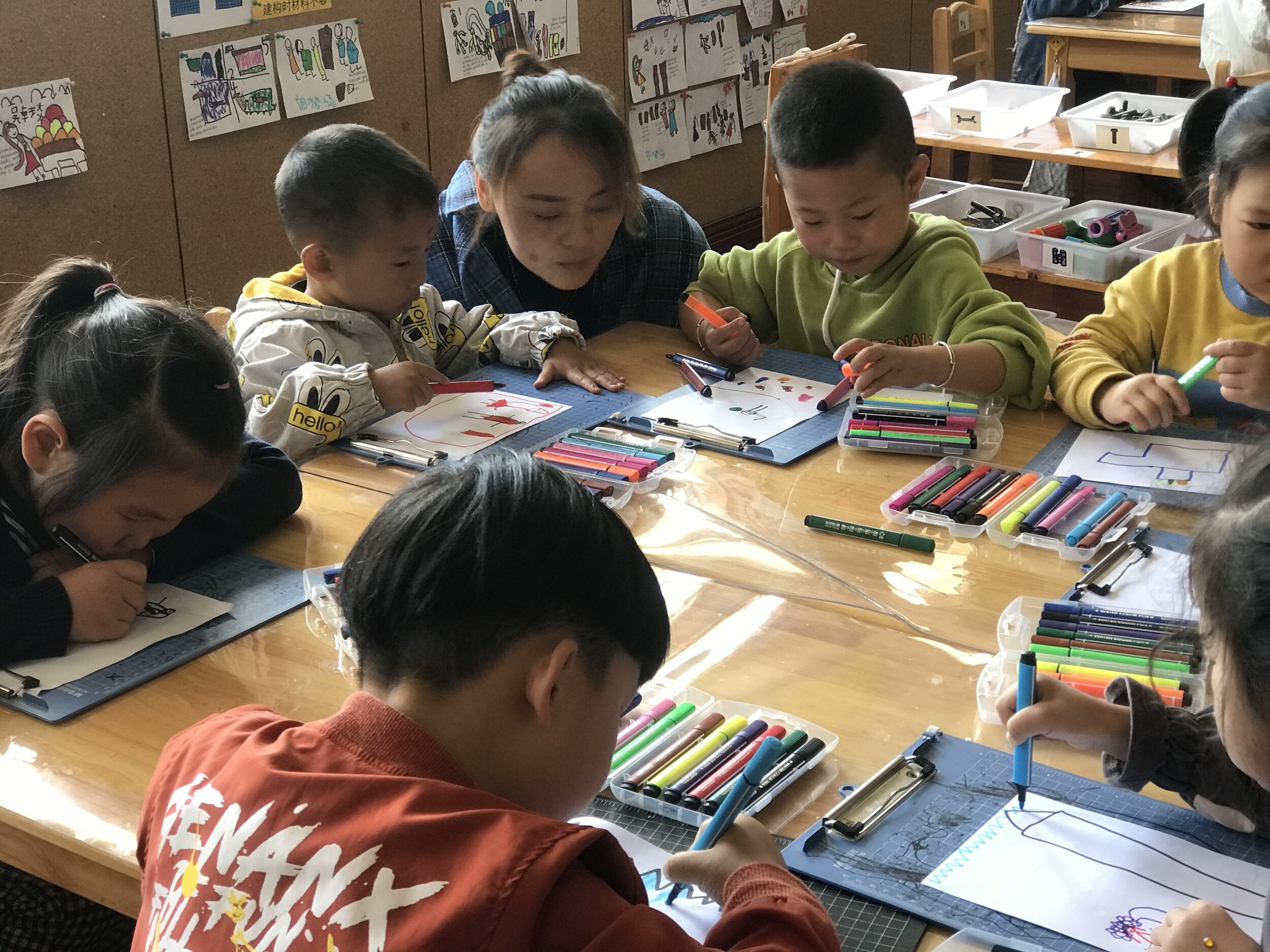Principles
The AnjiPlay approach is based on five interconnected principles: love, risk, joy, engagement, and reflection, and a fundamental belief in the ability of the child.
Love: Safety that comes from responsive, reliable, and consistent environments and relationships. The experience of being trusted, heard, seen, and respected.
Risk: The experience of doing something with uncertain outcomes based on a prediction. Risk is the basis of inquiry, learning, discovery, and the scientific method.
Joy: The internal reward that comes from experiences of risk, deep engagement, and discovery. The presence of joy is the clearest measure of quality in early childhood programs.
Engagement: A sense of connection and purpose that arises from exploration and discovery of the physical and social worlds.
Reflection: The process of thinking about, interpreting, and understanding experiences and information.
Practices
Guided by an understanding of these principles, educators create safe and responsive environments centered on a first-hand understanding of their children’s needs and abilities, including every child’s need for extensive, uninterrupted, and unguided true play, play that is initiated, directed, and determined by the child. (see The Rights and Responsibilities of True Play) The child’s needs in play inform the design and selection of materials and environments.
During play, educators step back, remain present, and observe with their “hands down, mouths closed, ears, eyes, and heart open” (responding, as necessary, to ensure safety). Children are trusted to solve their own conflicts, and overcome most challenges. By taking this stance of curiosity and trust, educators discover the child’s actual needs and abilities, and form a clearer picture of the true child. This contributes to close, authentic relationships between educators and children.
Educators learn more about the child and honor the child’s voice and experience by providing multiple opportunities for expression and reflection. Children draw a picture of their play every day, and the educator transcribes the child’s description of that picture. These Play Stories are featured prominently in the child’s environment, becoming the basis for child-led sharing, and are treated with the utmost care and respect.
Educators share photos and videos of the children’s recent play in small and large group settings. During Play Sharing, children are encouraged to describe and reflect on any aspect of their play and the play of their peers. Educators ask non-leading, open-ended, and clarifying questions to learn more about the children, their thinking, and their play. The educator is careful not to lead the children’s reflection to any specific learning outcome.
In AnjiPlay programs, children are presented with clear, simple, and reasonable expectations: do not hurt yourself - take care of yourself; do not hurt others - take care of others; do not hurt the environment - take care of the environment. Additionally, children are expected to return play materials when they are done using them.
In AnjiPlay programs, educators have autonomy to adjust the schedule of the day in response to the needs of their children. Activities like lunch, nap time, and self-care routines are necessary needs-based anchors during the day that happen at fixed times. Otherwise, children are primarily engaged in play and reflection. Transitions between these activities are kept to a minimum, and children are given extensive time to transition at their own pace.
Books, art exploration, celebrations, and family participation are also central to the child’s experience at school. Experienced AnjiPlay teachers also respond to children’s play by providing materials that allow children to deepen their explorations and inquiry. However, this supportive response is not organized around teacher-defined outcomes or activities. Children still take the lead, and determine the direction and length of their exploration and inquiry.
In AnjiPlay schools, professional development and family and community engagement is centered on observing play, recording play, reflecting on play, changing the environment to meet children’s needs, sharing discoveries, and free and open discussion about challenges and decision-making. This approach is supported by school administration that provides daily planning and reflection time for classroom teaching teams, and weekly planning and reflection time for all educators at their school to come together and reflect.
By observing and recording play, by listening to the child’s reflection on their own experiences of play, and through reflection with peers and the community, the AnjiPlay educator constantly seeks a clearer understanding of the child, but also acknowledges that the child’s true abilities may remain unknown and uncertain. Through a commitment to discovering the true child in true play, AnjiPlay educators constantly learn and grow, and question their assumptions about children and education.



